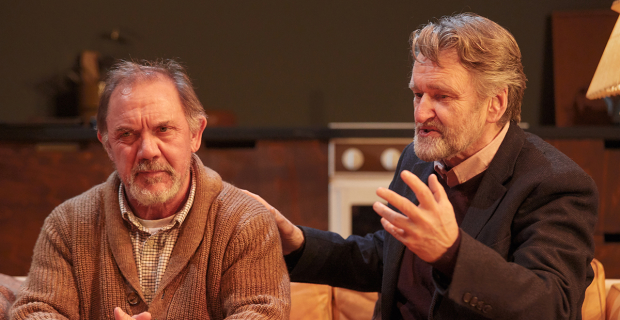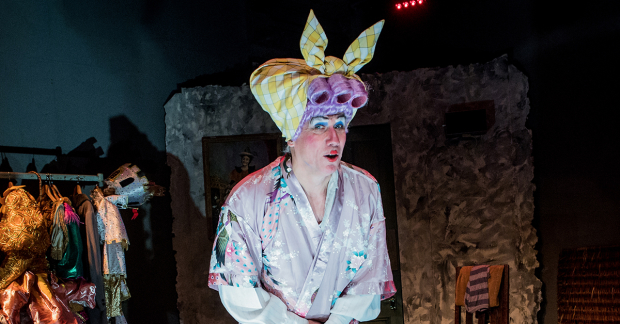Review: Rosenbaum's Rescue (Park Theatre)

© Mark Douet
One of the mysteries of World War Two still argued over 75 years later is the exodus of almost all of Denmark's Jewish population to neighbouring Sweden. Was this a Great Escape from the Nazis' clutches? Or, as some suggest, did it happen because the oppressors chose to look the other way?
This debate is vigorously acted out in Rosenbaum's Rescue, a new play written by A Bodin Saphir and directed by Kate Fahy. It imagines an Abraham Rosenbaum: one of the roughly 8000 Danish Jews who was taken across the border to safety in 1943.
Rosenbaum (David Bamber), a lover of myths, considers his rescue to have been a matter of divine intervention. But his old friend/adversary Lars (Neil McCaul), a revisionist historian, is certain there was no such miracle – saying the Germans had reasons for turning a blind eye to the Jews' flight.
Their disputes over this – and everything else – come out in a tea party gone wrong. Lars and his daughter Eva (Dorothea Myer-Bennett) visit Abraham and his wife Sara (Julia Swift) at their Copenhagen home, but get trapped there after a snowstorm. The man-of-faith-versus-man-of-science is a battle you've seen many times before, but seldom with so many strands to it.
All the history-related point-scoring is just a proxy for the various grudges lurking within each character, which escalate into a long and sprawling melee. There's a longstanding rivalry held by Abraham and Lars over the love of Lars's dad, there's a complicated romantic history between Sara and Lars, and there are Eva's youthful rebellions against her father.
There's a lot to take in, and the play's overall scope is a touch over-ambitious. The academic argument at the play's heart is hammered out in a level of detail that would please a scholar but which leaves little room for the play's many other valuable aspects.
For instance, the backdrop. The occasional chattering of a radio reveals that the story is set in late 2001; shortly after a Danish general election dominated by the topic of immigration and anti-Muslim sentiment post- 9/11. One of the play's finest moments sees the situation judged against the rise of the far-right in Germany in the 1930s.
But you can't help but wonder if there's potential for even more parallels to be drawn with the nasty tenor of political debate in contemporary Britain – and, perhaps, for more reflection on how such divisions can be patched up. Often in Rosenbaum's Rescue, it's all consternation, no reconciliation.
That doesn't mean the cast are not stormily brilliant in their consternations. As Lars – a warrior for truth – McCaul treads a line between historian and foaming conspiracy theorist. Bamber's Abraham, is full of Jewish humour and Swift's long-suffering wife Sara is no less engaging as a sweet hostess hiding skeletons in her closet. And Myer-Bennett imagines a sassy, sarcastic Eva challenging her dad's preconceptions on all things from citizenship to sexuality.
With all these subplots, Rosenbaum's Rescue is a scholar's dream in itself. The play uses a less-discussed wartime narrative to build a story which points out the shades of grey in life. There are two sides to any story, at least, and in Saphir's play there are many stories and many sides. Although overwrought in parts, it is unwaveringly thought-provoking and even has some surprising twists.

















